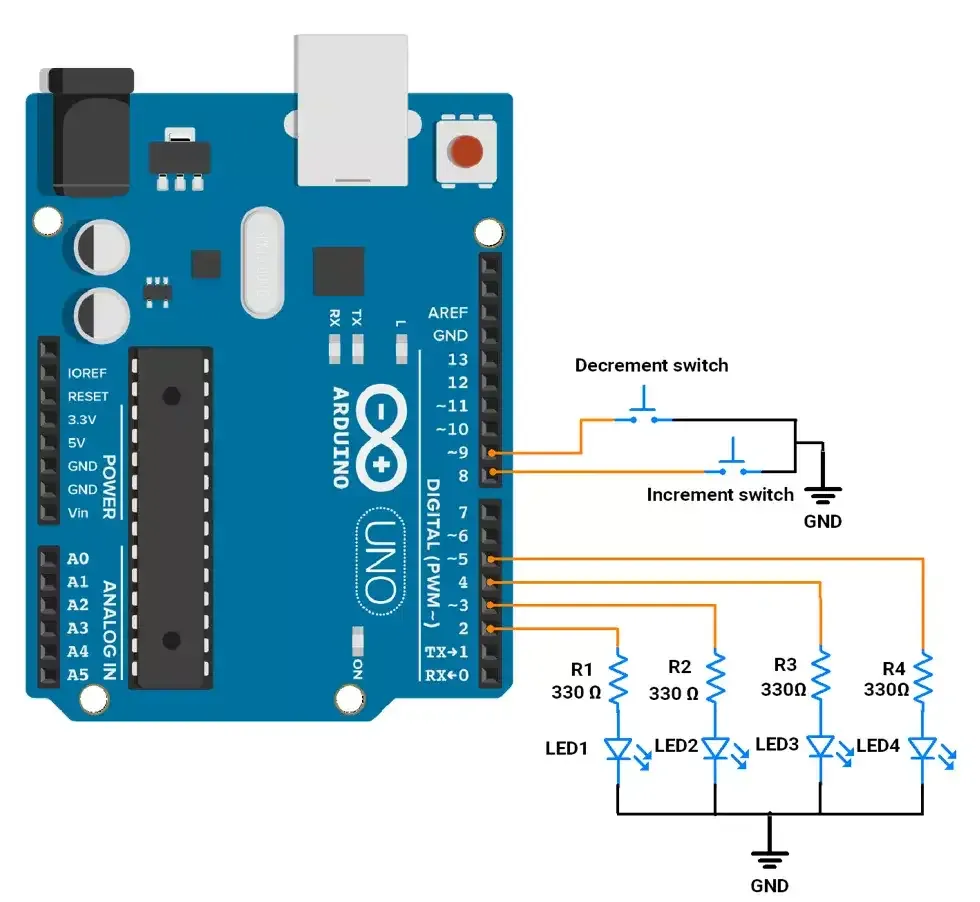Loading...
Implement a 4-bit binary counter
Solving Approach
How do you plan to solve it?

Code
/*Paste your code here*/
uint8_t ledPins[4] = {2, 3, 4, 5};
uint8_t switchPins[2] = {8, 9};
uint8_t counter = 0;
uint8_t debounceDelay = 50;
unsigned long lastDebounceTime[2] = {0, 0};
uint8_t lastButtonState[2] = {HIGH, HIGH};
uint8_t ButtonState[2] = {HIGH, HIGH};
void setup() {
for (int i = 0; i < 4; i++) {
pinMode(ledPins[i], OUTPUT);
}
for (int i = 0; i < 2; i++) {
pinMode(switchPins[i], INPUT_PULLUP);
}
}
void loop() {
if (isButtonPressed(0) && counter < 15) {
counter++;
updateLEDs();
}
if (isButtonPressed(1) && counter > 0) {
counter--;
updateLEDs();
}
}
bool isButtonPressed(uint8_t switchIndex) {
int reading = digitalRead(switchPins[switchIndex]);
if (reading != lastButtonState[switchIndex]) {
lastDebounceTime[switchIndex] = millis();
}
lastButtonState[switchIndex] = reading;
if ((millis() - lastDebounceTime[switchIndex]) > debounceDelay) {
if (reading != ButtonState[switchIndex]) {
ButtonState[switchIndex] = reading;
if (ButtonState[switchIndex] == LOW) {
return true;
}
}
}
return false;
}
void updateLEDs() {
for (int i = 0; i < 4; i++) {
digitalWrite(ledPins[i], (counter >> i) & 1);
}
}
Output
Video
Add a video of the output (know more)
Upvote
Downvote
